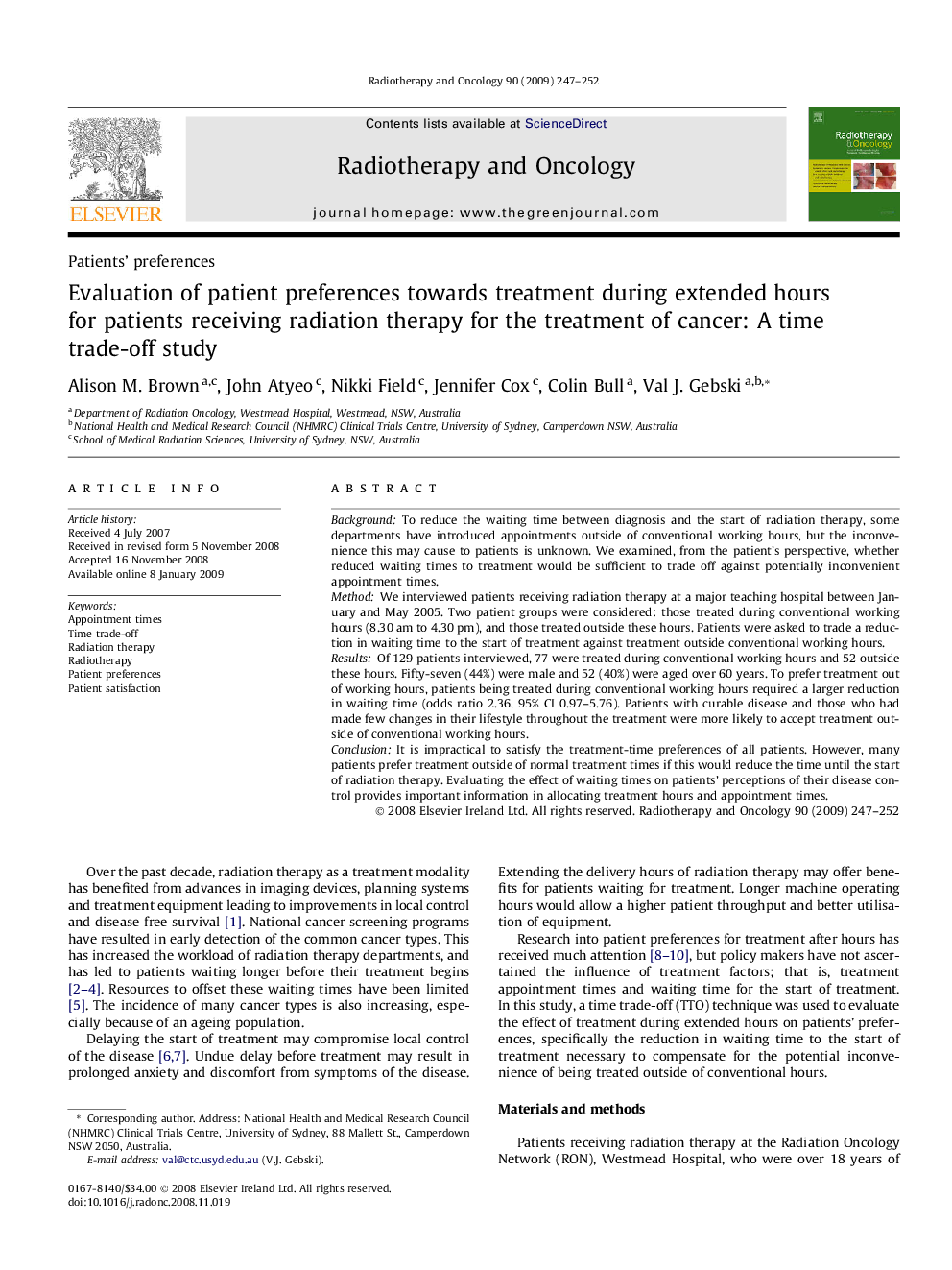| Article ID | Journal | Published Year | Pages | File Type |
|---|---|---|---|---|
| 2160127 | Radiotherapy and Oncology | 2009 | 6 Pages |
BackgroundTo reduce the waiting time between diagnosis and the start of radiation therapy, some departments have introduced appointments outside of conventional working hours, but the inconvenience this may cause to patients is unknown. We examined, from the patient’s perspective, whether reduced waiting times to treatment would be sufficient to trade off against potentially inconvenient appointment times.MethodWe interviewed patients receiving radiation therapy at a major teaching hospital between January and May 2005. Two patient groups were considered: those treated during conventional working hours (8.30 am to 4.30 pm), and those treated outside these hours. Patients were asked to trade a reduction in waiting time to the start of treatment against treatment outside conventional working hours.ResultsOf 129 patients interviewed, 77 were treated during conventional working hours and 52 outside these hours. Fifty-seven (44%) were male and 52 (40%) were aged over 60 years. To prefer treatment out of working hours, patients being treated during conventional working hours required a larger reduction in waiting time (odds ratio 2.36, 95% CI 0.97–5.76). Patients with curable disease and those who had made few changes in their lifestyle throughout the treatment were more likely to accept treatment outside of conventional working hours.ConclusionIt is impractical to satisfy the treatment-time preferences of all patients. However, many patients prefer treatment outside of normal treatment times if this would reduce the time until the start of radiation therapy. Evaluating the effect of waiting times on patients’ perceptions of their disease control provides important information in allocating treatment hours and appointment times.
